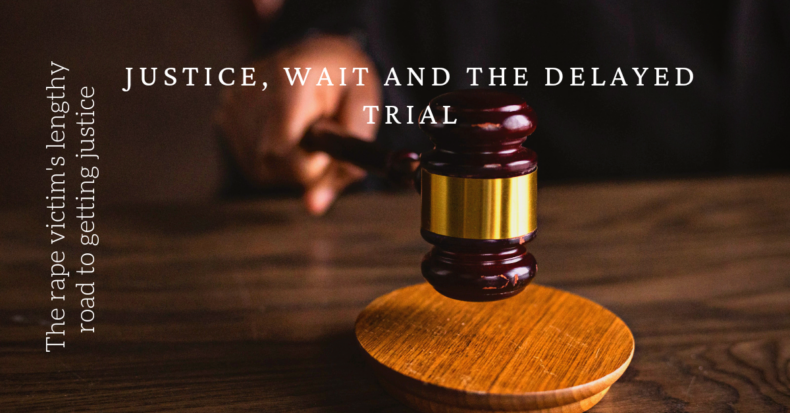To address pending rape cases and cases under the 2012 Protection of Children from Sexual Offenses (POCSO) Act, the government approved the establishment of 1,023 fast-track special courts.

Under the centrally funded development scheme, a sum of Rs. 767.25 crores was allotted to establish 1,023 fast-track special courts to facilitate quick disposal of rape trials.
Three years later, inadequate progress has been made, delaying justice for the thousands of those who have been withstanding the slow-paced and poorly designed judicial mechanism.
Nine states are still to fully comply with the scheme, with two states and one Union Territory (UT) not having given their consent for the same, more than three years after the central government proposed a centrally sponsored scheme (CSS) to establish Fast Track Special Courts (FTSC) and exclusive Protection of Children Against Sexual Offence (POCSO) courts to expedite the disposition of rape and child sexual abuse cases.
https://indianexpress.com/article/india/crime-against-kids-a-third-still-under-pocso-8119689/
Assam, Maharashtra, Andhra Pradesh, Bihar, Karnataka, Goa, Telangana, Kerala and Odisha have not established FTSCs and exclusive POCSO courts, contrary to projections provided by the Union Law Ministry for each state, according to an analysis conducted by the Union Ministry of Law and Justice.
Arunachal Pradesh and West Bengal have yet to approve the proposal and allocate the two kinds of criminal cases to special courts. Only the Andaman and Nicobar Islands UT has not approved the establishment of exclusive POCSO courts and specialised FTSCs.
Paving the way for Fast-Track Courts: Outlining the Inception and the Need of the Hour

FTSCs were intended to be a component of the CSS with a commitment to ensure the targeted disposition of POCSO and rape cases that were still unresolved. According to the CSS, the state and UT governments each contribute 40% of the cost to launch the courts, while the central government provides 60% of the fund.
After the adoption of The Criminal Law (Amendment) Act, 2018, which reinforced the already-existing Indian Penal Code (IPC), Code of Criminal Procedure (CrPC), Indian Evidence Act, and POCSO, this scheme was developed. For both women’s and children’s rape, it designated severe penalties.
A proposal to create separate POCSO courts in regions with more than 100 unresolved child sexual assault cases was also included in the CSS of 2019 at the Supreme Court’s request. It was established that only POCSO cases will be addressed in these courts.
The CSS for FTSCs was implemented across the 2019–20 and 2020–21 fiscal years, and it became effective in October 2019. However, based on the suggestions and the cabinet’s consent, the programme has been extended until March 2024.
There is a massive delay in the implementation of the scheme across various states, with the notable states being West Bengal and Arunachal Pradesh which have not yet consented to the advent of special courts. West Bengal was instructed to have 123 FTSCs and 20 special POCSO courts, while Arunachal Pradesh was needed to open 3 FTSCs.
Furthermore, data reveals that Telangana has started just 34 FTSCs, as opposed to the indicated 36, in the states where the courts are only partially operational and 10 POCSO courts are yet to be set up.
33 of the 138 projected FTSCs and 18 of the 30 proposed specified POCSO courts have already been established in Maharashtra. Likewise, Kerala has established 17 POSCO courts, Andhra has 13 and UP has 45.
https://www.bbc.com/news/world-asia-india-62830634
Most of the states have adopted either of the two provisions, lagging in the implementation of the scheme. States such as Kerala and UP are lagging in setting up FTSC, with other states of Karnataka, Goa, Andhra Pradesh, Assam, Bihar and Odisha having complied with either of the two provisions have hampered the execution of the scheme.
Thriving Pendency: A look at the extended wait and inadequately served justice
Bleak faces with exhausted physiques and resentment throng the exterior of these courts while prolonged delay, insufficient function and poorly served justice inhabit the interiors. As the room smells of half scraped paint and damp papers softening in the tightened-up air, and long queues expand; the files pile up one over the other, coming to be an infinite loop where justice appears too far to reach.
As the pendency in these courts across the 28 states and UTs rise as per the assessment conducted by the law ministry, there is a necessity to address the tardy advancement of cases in these courts.
The National Crime Records Bureau (NCRB) reports that at the end of 2019, there were 27.8% convictions in rape cases and an 89.5% pendency rate. At the culmination of the year, 88.8% of POCSO cases were still pending, and of those that were resolved, 34.9% resulted in a conviction.
As of July 31, 2022, 1,93,195 cases were pending in FTSCs and exclusive POCSO courts. The anticipated number of cases to be resolved by these courts was estimated at 1,66,882 at the moment the plan was conceived, in June 2019.
In these courts in Uttar Pradesh, there are more than 75,000 pending cases. In Madhya Pradesh, over 13,000 cases are pending, with just over 10,000 cases being heard by the POCSO court solely.

Even though POSCO law was aimed at speedy disposal of the trials, making it obligatory to end the prosecution of cases undertaken within a year, there has been a delay in the adequate implementation of the scheme, leaving thousands stranded with dwindling hope.
Fast-track courts that were established in India to expedite the trial of rape cases did not have the dramatic effect that supporters had anticipated. It has rather subsisted as a slow-moving and laggard mechanism that is functioning poorly and inadequately where justice is served sloppily and the word ‘fast’ is somewhat a paradox.













